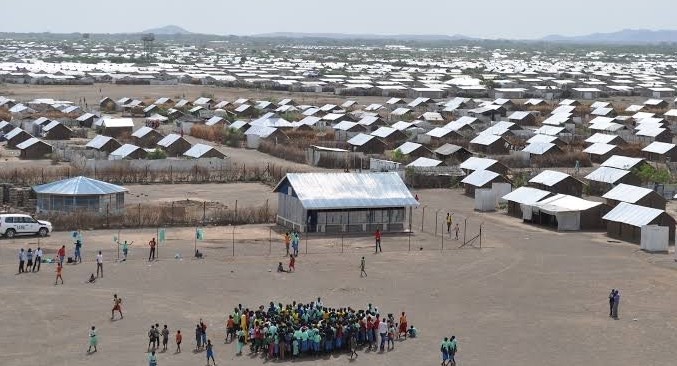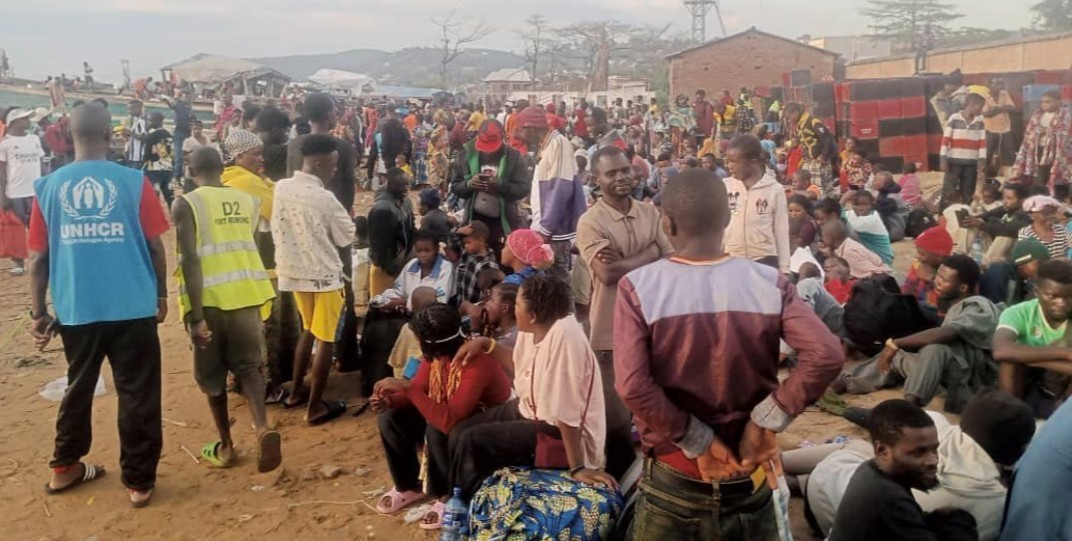Cholera claims one life in Kakuma Refugee Camp as 30 cases confirmed since May 18

So far, a total of 30 individuals have tested positive for the disease, with 74 tests conducted on individuals exhibiting cholera-like symptoms.
One person has died of cholera at the Kakuma Refugee Camp in Turkana County since the first case was reported on May 18, health officials have confirmed.
So far, a total of 30 individuals have tested positive for the disease, with 74 tests conducted on individuals exhibiting cholera-like symptoms.
More To Read
- KNCHR report casts doubt on Kenya’s commitment to refugee protection
- UNICEF, Save the Children hail Turkana’s progress in tackling malnutrition
- Turkana marks World AIDS Day with stark warning over rising HIV infections
- Review meeting highlights barriers to immunisation, maternal health in Turkana
- Mandera marks major sanitation milestone as 64 villages achieve ODF status
- Turkana stakeholders urge reforms to fisheries Bill to protect local fishers and blue economy
According to the Turkana County government, the latest case was reported on June 8 at Amussait Hospital.
"As of June 8, 2025, there is one new case reported in Amusait Hospital located in Kakuma Refugee Camp. Since the first case was reported on May 18th, there have been a total of 74 reported cases with 30 laboratory confirmed cases, and one fatality," said the county on its official website.
According to Janerose Tioko, the Chief Officer for Preventive and Promotive Health, the county has launched a rapid response in collaboration with key stakeholders to bolster preventive efforts within both the host and refugee communities in Kakuma and Kalobeyei camps.
Cholera detection
She added that the response measures include training healthcare workers and community health promoters on cholera detection and case management, enhancing water supply and improving water treatment at both the source and household levels.
She also noted that ongoing mass sensitisation and community engagement efforts have highlighted the urgent need for more healthcare personnel to support teams on the ground and at border entry points.
"We are sensitising communities through community health promoters on the importance of maintaining high levels of sanitation, practising good hygiene at the household level and improving water treatment at both water sources and in homes. We have also banned hawking and open-air cooking of food," Tioko said.
In May, the Turkana County Department of Health and Sanitation met with partners, including the World Health Organisation (WHO), to coordinate rapid response efforts to the cholera outbreak.
Emergency preparedness
The discussions focused on strengthening emergency preparedness through enhanced surveillance, contact tracing, and strategic interventions to curb further spread.
Dr Bonventure Ameyo, the County Deputy Director of Medical Services, stressed the importance of improving coordination, monitoring hotspot areas, and increasing vigilance at border entry points.
"We need to strengthen awareness creation and risk communication, commodity pre-positioning and management, laboratory and logistical management, and water, sanitation and hygiene (WASH)/infection prevention," he said then.
According to the WHO, cholera is an acute diarrheal infection caused by consuming food or water contaminated with the bacterium Vibrio cholerae.
"It is a global public health threat and indicates inequity and lack of social and economic development," WHO says.
"Access to safe water, basic sanitation and hygiene is essential to prevent cholera and other waterborne diseases."
Top Stories Today












































